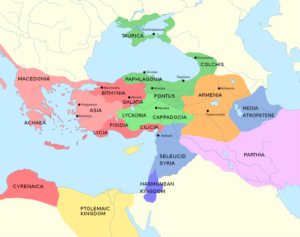“who by God’s power are being guarded through faith for a salvation ready to be revealed in the last time” (1 Peter 1:5 ESV).
The second important dynamic given to us in 1 Peter 1:5 is faith. One Biblical dictionary defines faith as “A belief in or confident attitude toward God, involving commitment to His will for one’s life.” (1) However, the New Testament book of Hebrews offers the best definition of faith…
“Now faith is the assurance (title deed, confirmation) of things hoped for (divinely guaranteed), and the evidence of things not seen [the conviction of their reality—faith comprehends as fact what cannot be experienced by the physical senses].” (Hebrews 11:1-3 AMP).
Faith involves the confident expectation that God will act in a trustworthy manner to fulfill His promises, even when external appearances may seem to suggest otherwise. This kind of faith serves as a defining quality of a God-honoring life, for as Romans 1:17 tells us, “…it is written: ‘The righteous will live by faith'” (NIV). This makes faith something we possess, as well as a lifestyle that should characterize those who seek to honor God.
One theologian analyzes the tension that exists within this passage as we are kept by God’s power through faith…
“While Scripture repeatedly emphasizes that those who are truly born again will persevere to the end and will certainly have eternal life in heaven with God, there are other passages that speak of the necessity of continuing in faith throughout life. They make us realize that what Peter said in 1 Peter 1:5 is true, namely, that God does not guard us apart from our faith but only by working through our faith so that he enables us to continue to believe in him. In this way, those who continue to trust in Christ gain assurance that God is working in them and guarding them.
One example of this kind of passage is John 8:31-32: “Jesus said to the Jews who had believed him, ‘If you abide in my word, you are truly my disciples, and you will know the truth, and the truth will set you free.'” Jesus is here giving a warning that one evidence of genuine faith is continuing in his word, that is, continuing to believe what he says and living a life of obedience to his commands. Similarly, Jesus says, “The one who endures to the end will be saved” (Matt. 10:22), as a means of warning people not to fall away in times of persecution.” (2)
(1) “Faith” Nelson’s Illustrated Bible Dictionary, Copyright © 1986, Thomas Nelson Publishers
(2) Wayne Grudem, Systematic Theology: An Introduction to Biblical Doctrine, Second Edition. (Grand Rapids, MI: Zondervan Academic, 2020), 975.



 The list of provinces given to us here in 1 Peter 1:1 may offer a clue regarding the first-century distribution of this letter. For instance, a courier who was tasked with the responsibility to deliver this epistle might begin in the northern region of Pontus and then proceed in a clockwise direction through the remaining provinces in the order given to us here. As the letter carrier traveled through these regional areas, each group of recipients had an opportunity to copy this letter for later reference before sending the messenger on his way to the next destination.
The list of provinces given to us here in 1 Peter 1:1 may offer a clue regarding the first-century distribution of this letter. For instance, a courier who was tasked with the responsibility to deliver this epistle might begin in the northern region of Pontus and then proceed in a clockwise direction through the remaining provinces in the order given to us here. As the letter carrier traveled through these regional areas, each group of recipients had an opportunity to copy this letter for later reference before sending the messenger on his way to the next destination.